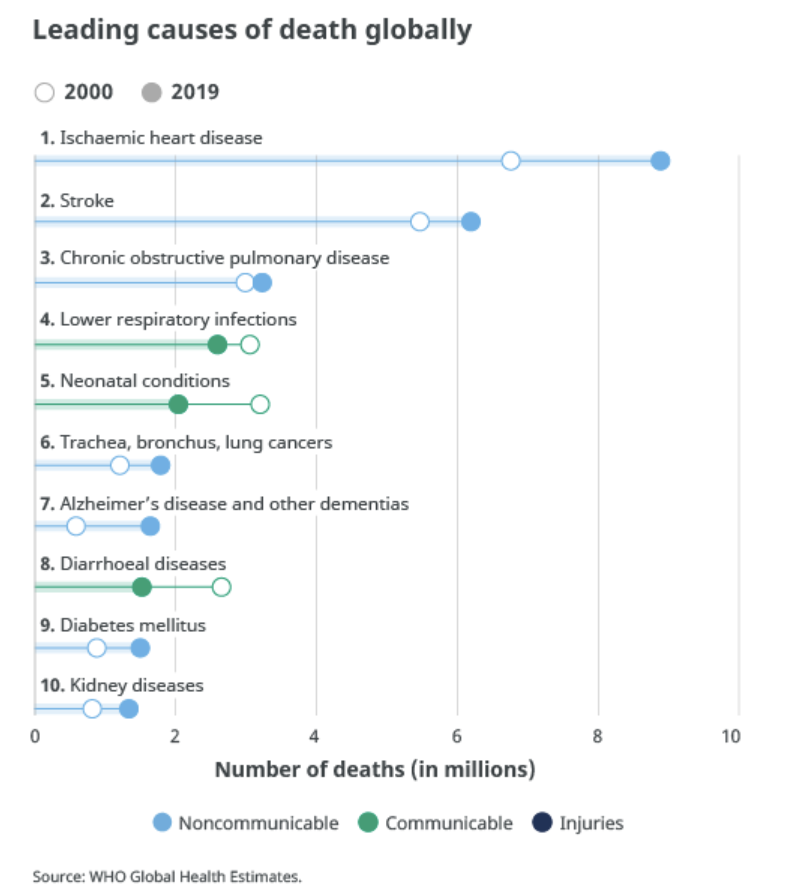Strategies for a Healthy Heart


Heart Disease involves the reduction of blood flow to the heart muscle due to build-up of plaque (atherosclerosis) in the arteries of the heart.
A common symptom is chest pain or discomfort which may travel into the shoulder, arm, back, neck, or jaw. Occasionally it may feel like heartburn. Usually symptoms occur with exercise or emotional stress, last less than a few minutes, and improve with rest. Shortness of breath may also occur and sometimes no symptoms are present. And, as you may know, heart disease is a silent killer for women.
Risk factors include chronic stress, high blood pressure, smoking, diabetes, lack of exercise, obesity, high blood cholesterol, poor diet, depression, and excessive alcohol.
These risk factors are important to note relative to educator wellness, well-being and self-care. When you are on the reactivity wheel day in and day out, it's important to stop and take note of your health and wellness.
It is within our control to take action and make improvements - it is never too late! So what can you do about it? Two main methods within your control are diet and physical activity!
- Diet. Saturated fat and cholesterol in the food you eat make your blood cholesterol level rise. Saturated fat is the main problem, but cholesterol in foods also matters. Reducing the amount of saturated fat in your diet helps lower your blood cholesterol level. Foods that have high levels of saturated fats include some meats, dairy products, chocolate (sugar!), baked goods (sugar!), and deep-fried and processed foods (sugar!). Decrease the amount of sugar you consume through liquids (soda and juice, sports drinks) and increase the amount of water you drink daily. Schools are filled with sugar and candy - make a pledge to decrease the amount of sugar and unhealthy treats that are available.
- Physical Activity. Not being physically active is a risk factor for heart disease. Regular physical activity can help lower LDL (bad) cholesterol and raise HDL (good) cholesterol levels. It also helps you lose weight. You should try to be physically active for 30 minutes on most, if not all, days.
Another important lifestyle change to consider:
- Managing stress. Research has shown that chronic stress can sometimes raise your LDL cholesterol and lower your HDL cholesterol. With the current educational landscape it's important to note the impact of stress, chronic stress, burnout and other stress factors on educators. Consider the following to help manage stress:
- Yoga
- Meditation
- A daily mantra
- Gardening
- Taking a non-negotiable break between each meeting
- Journaling
All of these components and additional strategies are discussed as part of the Wellness Module and action planning process during the Joyful Leadership Institute.
Every day we have the opportunity to make choices that support our health, happiness, and well-being. What can you commit to today in order to improve your heart health and overall wellness?
Are you like me and need a little accountability? When I find myself less healthy eating choices or not working out as often as I should, a strategy that I've used to keep track of my health and wellness over the years is this DIETMINDER Personal Food & Fitness Journal (A Food and Exercise Diary). I encourage you to use it to document your 30 minutes of exercise per day, daily water intake, healthy meals and snacks.
If this has been interesting to you and you would like to learn how you can support the wellness and well-being of the educators in your school district through our comprehensive educator well-being program, consider joining us for one of our complimentary webinars. Designed for school and district-level decision makers. Learn more and register HERE!
